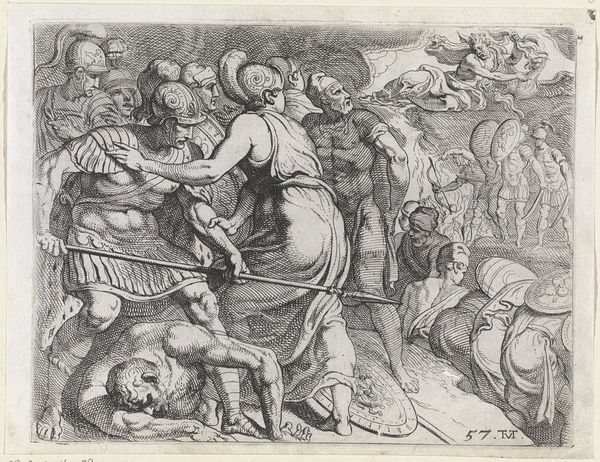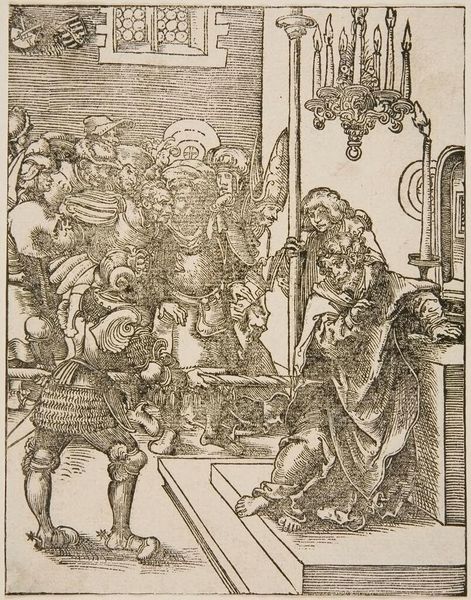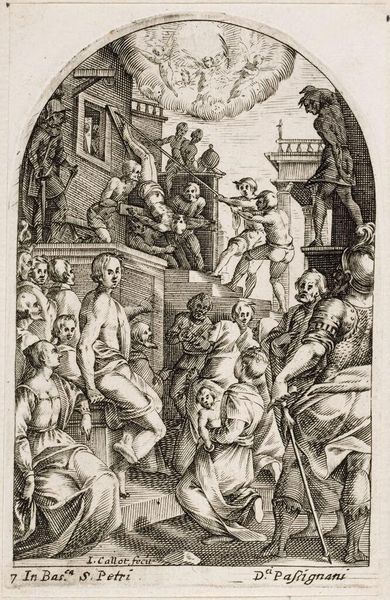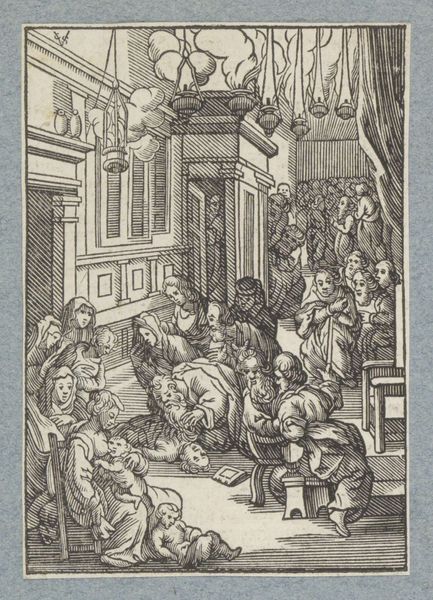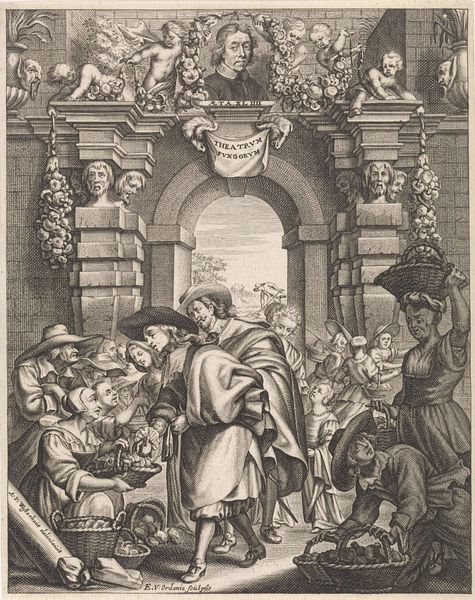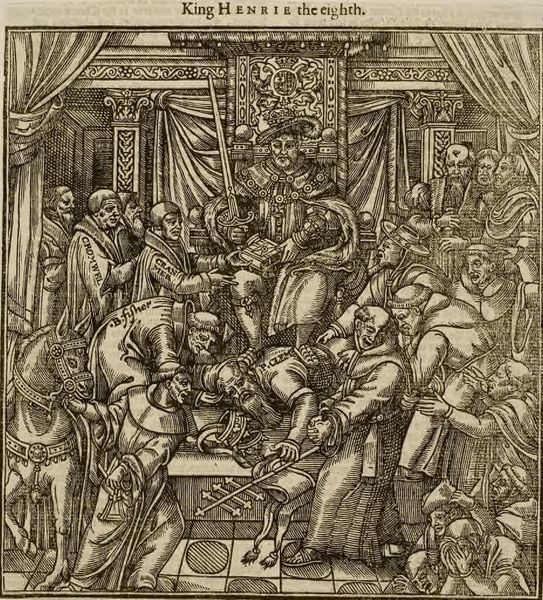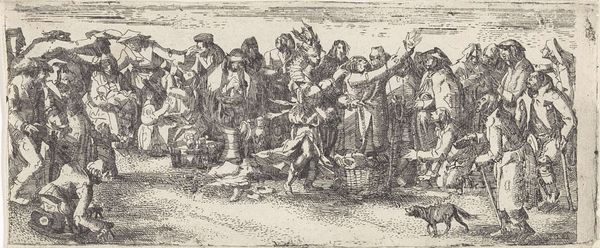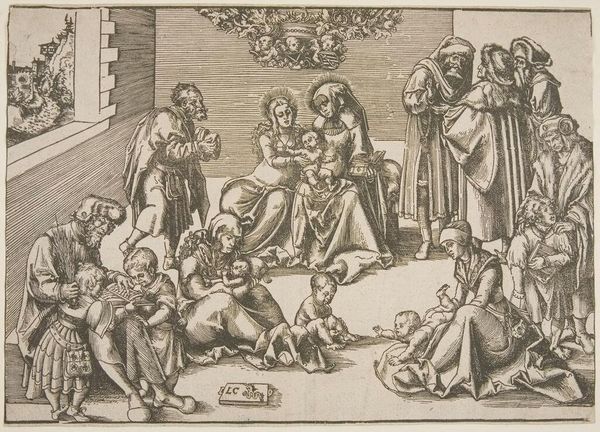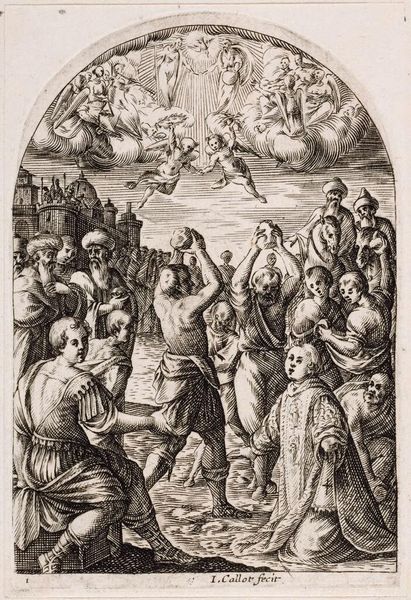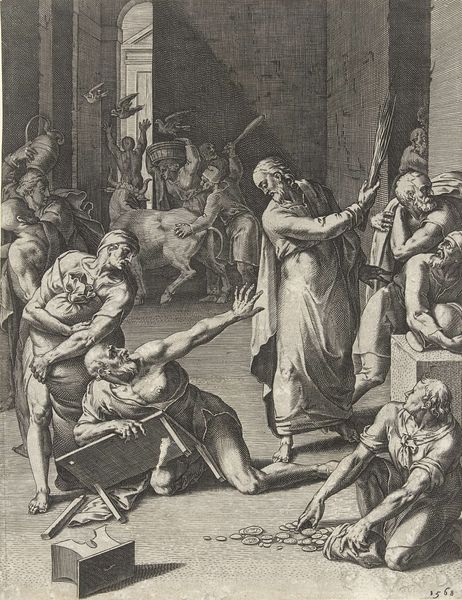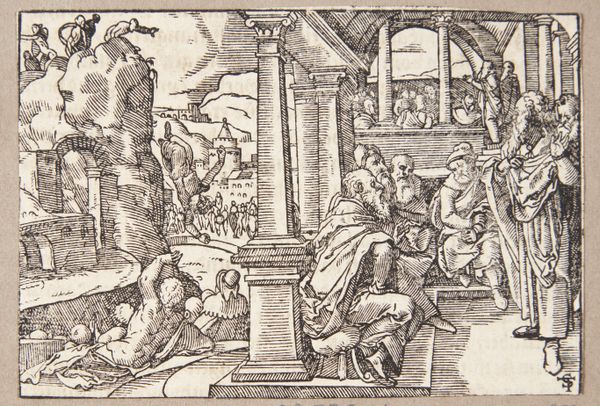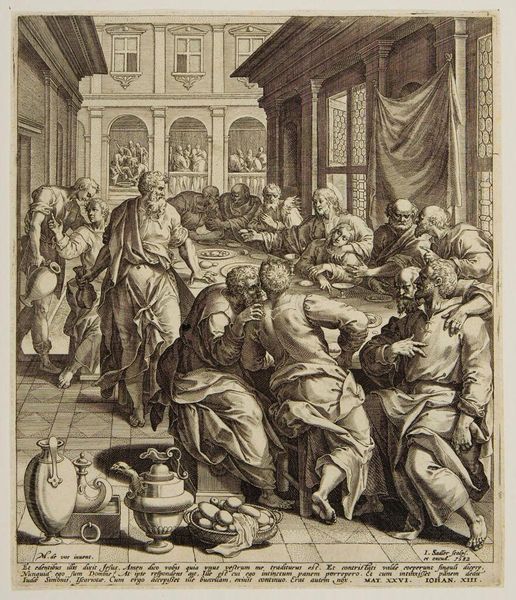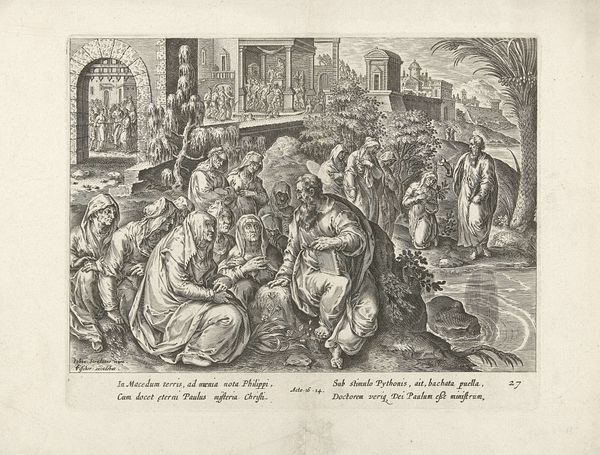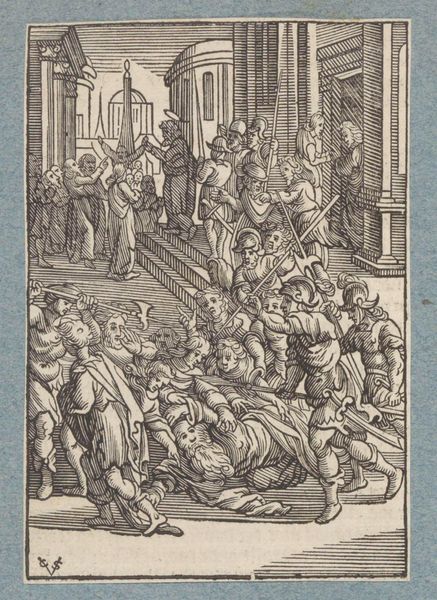
drawing, print, etching, paper, ink
#
drawing
#
narrative-art
#
pen drawing
# print
#
etching
#
mannerism
#
figuration
#
paper
#
ink
#
history-painting
Dimensions: 595 × 425 mm
Copyright: Public Domain
Jacques Bellange made this print, "The Adoration of the Magi," sometime in the early 17th century using etching and engraving. We see a familiar biblical scene, but Bellange complicates it by rendering it in a strange and theatrical style. Look closely, and you'll notice that the image is packed with figures in elaborate costumes. Bellange exaggerates the artificiality of the scene, drawing attention to the conventions of religious art itself. The location is palatial and overflowing with details of classical statuary and architecture. The figures are highly mannered, almost caricatures. Bellange worked in the court of Lorraine, France, a highly mannered and artificial environment. This print reflects the court’s interest in spectacle and display, but it might also be a commentary on the role of religion in courtly life. Was Bellange pointing to the ways that religious imagery can be used to create social spectacle? To understand this print better, we might look at prints of courtly life from the same period. What was the relationship between art and power in early modern France?
Comments
No comments
Be the first to comment and join the conversation on the ultimate creative platform.
